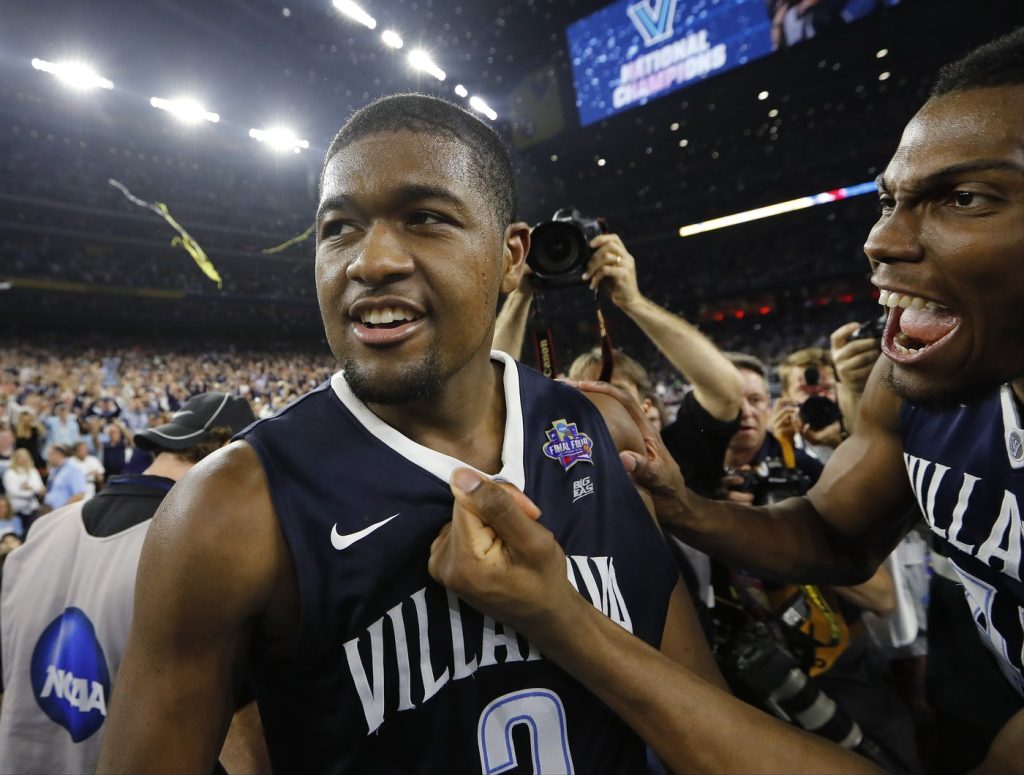Kris Jenkins, who famously made the game-winning shot for Villanova during the 2016 NCAA basketball championship game, is taking legal action against the NCAA and six conferences. He is seeking to recover income he believes he lost due to restrictions that prevented athletes from profiting from their name, image, and likeness (NIL) at that time.
Jenkins is one of approximately 350 current and former athletes who have opted out of a $2.8 billion antitrust settlement with the NCAA, which is nearing final approval. Many of those who opted out have pursued their own lawsuits to reclaim lost earnings.
Until July 2021, NCAA athletes were prohibited from making money through NIL opportunities. The proposed House settlement would allow for back pay to athletes dating back to 2016, with compensation amounts varying depending on the sport and the athlete's participation. Jenkins played for Villanova from 2013 to 2017, starting 72 of 76 games in his last two seasons, during which he averaged 13 points per game.
The lawsuit was filed on Saturday by attorney Kevin T. Duffy Jr. of Greenwich, Connecticut, in the U.S. District Court for the Southern District of New York. It calls for a jury trial, with the exact compensation for Jenkins to be determined during the trial. The NCAA has opted not to comment on the ongoing litigation.
According to the lawsuit, Jenkins is entitled to a portion of the financial gains associated with Villanova's national championship victory resulting from his buzzer-beating 3-pointer. Following that pivotal moment, the NCAA reportedly disbursed $19.1 million to the Big East Conference, which was then allocated among its member institutions. Villanova's athletic department received a historic $22.6 million donation, and the overall athletic program generated $11.4 million in revenue, enabling the full funding of its non-revenue sports.
The lawsuit highlights a 27% increase in alumni donations in 2016, a rise in enrollment figures, and estimates the publicity value of Villanova's championship win at approximately $250 million. This figure climbs to roughly $1 billion when accounting for the value of the game broadcasts.
Furthermore, the lawsuit contends that Jenkins was deprived of potential earnings from game telecast revenues and compensation for the use of his NIL in media broadcasts. He also missed out on potential income from third-party deals related to video games, marketing, sponsorships, social media, branding, and promotional opportunities.
The Atlantic Coast Conference, Big East, Big Ten, Big 12, Pac-12, and Southeastern Conference have been named as defendants, as they are alleged to have participated with the NCAA in collusive trade restraint and other legal violations outlined in the complaint.
As the landscape of collegiate athletics continues to evolve, Jenkins’ lawsuit underscores the growing tensions surrounding NIL rights for student-athletes, particularly those from previous years when such compensation was prohibited.
___
AP college sports: https://apnews.com/hub/college-sports
Eric Olson, The Associated Press










